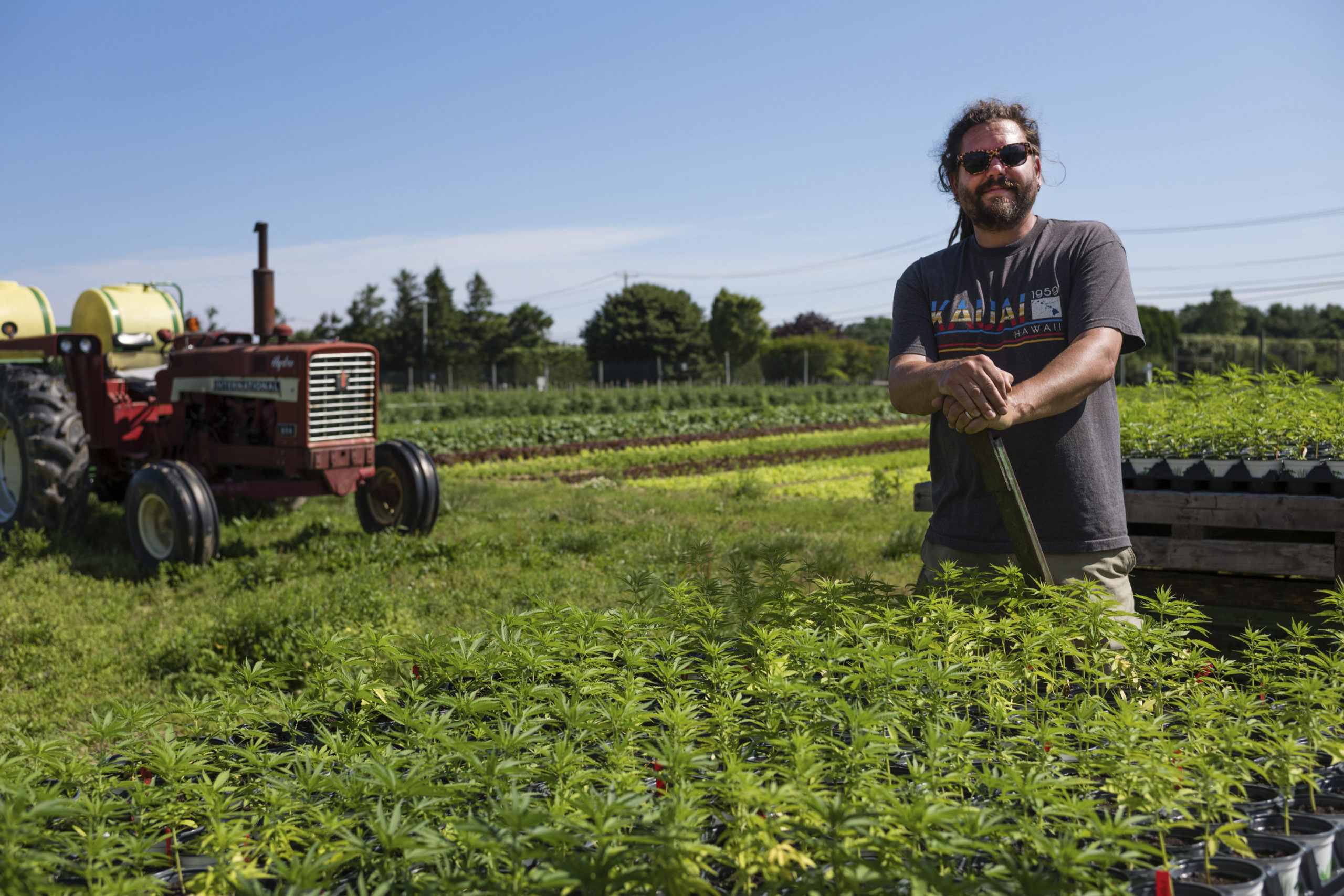
The New York State Department of Health is now accepting applications from businesses seeking to operate as cannabinoid hemp processors, retailers or distributors — a move that could effectively level the playing field between already compliant participants competing with unregulated products in a building cannabis market.
“Opening the application process for businesses looking to be part of the growing hemp industry in New York State is a critical step in the process of expanding our economy and building back better,” Governor Andrew M. Cuomo said in a statement. “Licensing gives processors, distributors and retailers the ability to help ensure the hemp industry’s long-term viability.”
According to David Falkowski, owner of Open Minded Organics in Bridgehampton — and one of the state’s first licensed growers of industrial hemp, as part of a pilot research program — this licensing is a long time coming, moving the state forward on the hemp side as it considers two cannabis legalization plans, the first offered by the governor as part of his April 1 budget and the second proposed by the State Senate.
“We’ve all been following these rules and regulations to stay compliant, for years already, especially as processors,” he said. “From a public health perspective, this is a good thing. Now there’s gonna be much more transparency, vetting, but it’s going to be a little difficult. The market’s gonna have to change a little bit.”
In recent years, the popularity of cannabidiol products, or CBD — a chemical compound, or cannabinoid, found in hemp extract — has exploded in the form of tinctures, vaporizations, oils, topicals, pills, capsules, food, beverages, and more.
But despite its origin from the cannabis plant, these products do not make the user “high,” due to the near absence of tetrahydrocannabinol, or THC. Once the plant reaches the legal limit of THC — which is 0.3 percent by dry weight volume — it must be harvested to prevent further development.
Licenses for hemp processing, distribution and sale are now overseen by the Cannabinoid Hemp Program, which is responsible for licensing and setting quality control standards that all cannabinoid hemp products must meet — including manufacturing, packaging, labeling and laboratory testing requirements.
In holding new license recipients accountable, the program will help organize and legitimize the growing cannabinoid hemp industry in New York State, while simultaneously protecting consumers from sub-standard and potentially dangerous products.
“What we have right now, with a lack of regulation and licensing, is a rampant market filled up with products that are unregulated, untested, very often made by unregulated entities from out of state and, in many cases, in state,” Mr. Falkowski said. “In general, if we really are concerned about a sovereign, robust cannabis economy and industry here in New York State, this is a very important step that many folks have been fighting for for years.”
When considering regulated versus unregulated processors, retailers and distributors, Mr. Falkowski calls it “a tale of two cities,” and used an analogy to illustrate.
Suppose a car with a license plate is breaking various traffic laws — speeding, running stop signs and lights — racing alongside another car doing the exact same thing, except without a license plate. In this case, the car with the plate would be pulled over and issued a ticket, while the car without the plate drives away, scot-free.
“I can’t even tell you how many sleepless nights I’ve had over this, the level of anxiety and the stress on myself and my staff,” Mr. Falkowski said. “You put your heart and soul into something and you invest in it, and you know you’re doing it right and you’re doing it right for your community … And then you go out into the world and everybody else is like, ‘What are you talking about? That’s not the world I live in.’
“Now it seems like there’s a reconciling of the two worlds,” he continued. “Unregulated entities have been able to do virtually whatever they wanted, and no one was doing anything about it.”
From this point forward, any business extracting or manufacturing cannabinoid hemp in New York State, whether in intermediate or final form, must obtain a cannabinoid hemp processor license, which are divided into two types.
An “Extracting and Manufacturing” license permits a processor to extract cannabinoids from hemp to create crude oil, distillate, isolate or other intermediary products for further refinement, and allows licensees to manufacture cannabinoid hemp products, while a “Manufacturing Only” license allows processors to purchase those extractions and use it to manufacture products.
Additionally, all businesses selling these products must be licensed as cannabinoid hemp retailers, and product distributors will need a cannabinoid hemp distributor permit to sell to retailers. In order to be sold, all products must be manufactured using “good manufacturing practices,” according to the governor’s press release, as well as receive laboratory testing by an approved third party, and be properly labeled to inform consumers of the amount of cannabinoids per serving, plus any associated risks.
“I think this is the best way they can begin implementing regulation and oversight and policing of products that are allowed in this regulation,” Mr. Falkowski said. “This is our plant. This is our time to keep it. We don’t need to take it back — we need to keep it.”